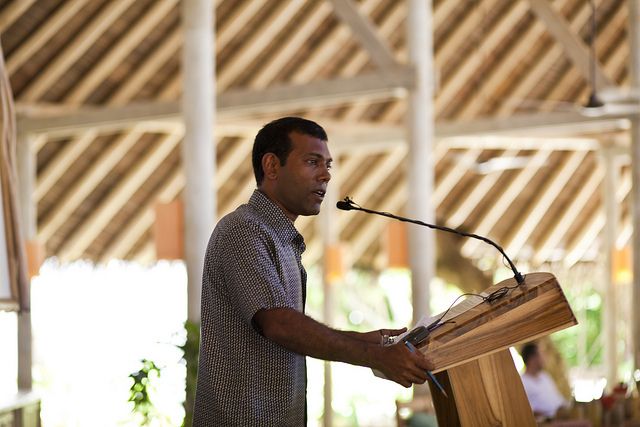Maldives carbon-neutrality goal gathers momentum
With the Maldives vying to become the world’s first carbon neutral country, the island nation's President, Mohamed Nasheed, has claimed that significant progress towards the ambitious goal is being made.


With the Maldives vying to become the world’s first carbon neutral country, the island nation's President, Mohamed Nasheed, has claimed that significant progress towards the ambitious goal is being made.
“We know a low-carbon growth trajectory is possible and we are going forward to do it,” the President announced at the Six Senses Slowlife Symposium held in the Maldives earlier this week. “Interest in new technology is a blessing for the Maldives. We won’t save the world by becoming carbon neutral – we emit nothing compared with other countries – but if we can demonstrate a low carbon development strategy that can be copied elsewhere, it will be a step in the right direction.”
The President used the conference to outline the substantial progress areas that he and his administration had made over the past twelve months. These included the following.
- Publishing the new carbon neutral electricity plan online and inviting ‘crowd-sourcing’ comments from experts worldwide
- Committing to a new target to generate 60% of electricity via solar power by 2020, and reducing electricity emissions by 80% without putting up the cost of power to consumers
- The signing of the first contract under the new ‘feed-in-tariff’ between the state electricity company and a Male’ hotel chain to supply solar power onto the grid
- A new import regime by the Transport Ministry to ensure that in future electric cars will be a third of the price of conventional petrol cars
- New policies to encourage the uptake of renewable energy and marine transport
- The pledge to spend 2% of national income on renewable energy deployment in the country
Nasheed also brought attention to the fact that a number of large countries are beginning to make considerable changes to enhance green energy practices. “There are encouraging signs – India and China are listening much more than before. They see the opportunity for renewable energy growth.”
Despite this the President did highlight his stern views on the slow progress of climate negotiations ahead of COP 17 to be held in Durban towards the end of next month. “The UNFCCC is still not able to come out with a clear understanding and I don’t see them being able to do it in the near future either,” Nasheed added. 
The event was attended by a variety of government ministers, journalists, the actor and environmentalist Edward Norton and the founder and Chairman of the Virgin Group, Sir Richard Branson. Sir Richard, who spoke at the conference on Sunday, addressed the audience by stating that the Maldives could be looked at a global test bed for renewable technologies. “If we don’t have alternative fuels we are going to have the mother of all recessions. The way to kick-start the revolution is to have no tax on all clean energy while slowly increasing tax on dirty energy,” said the British entrepreneur.
